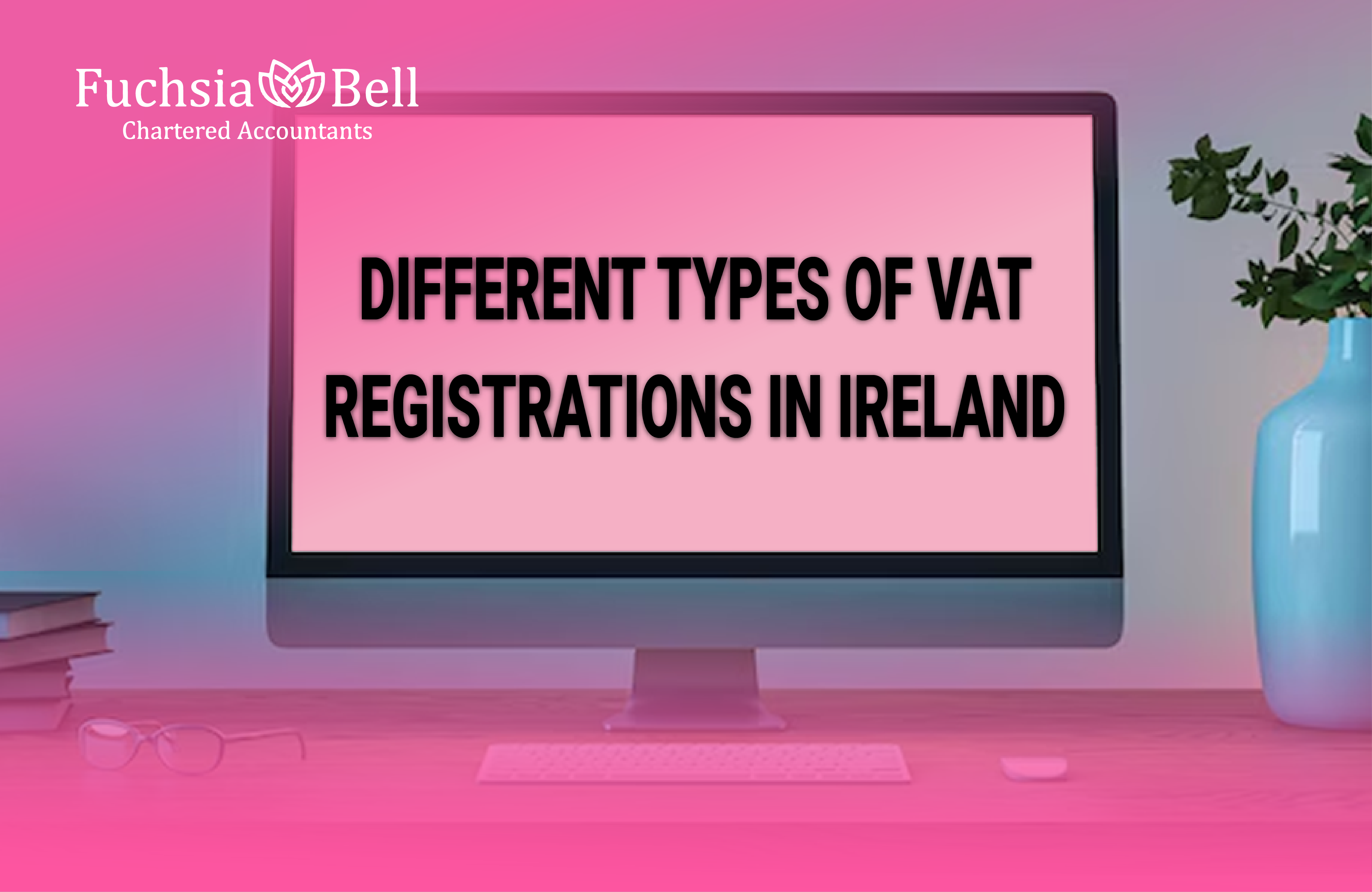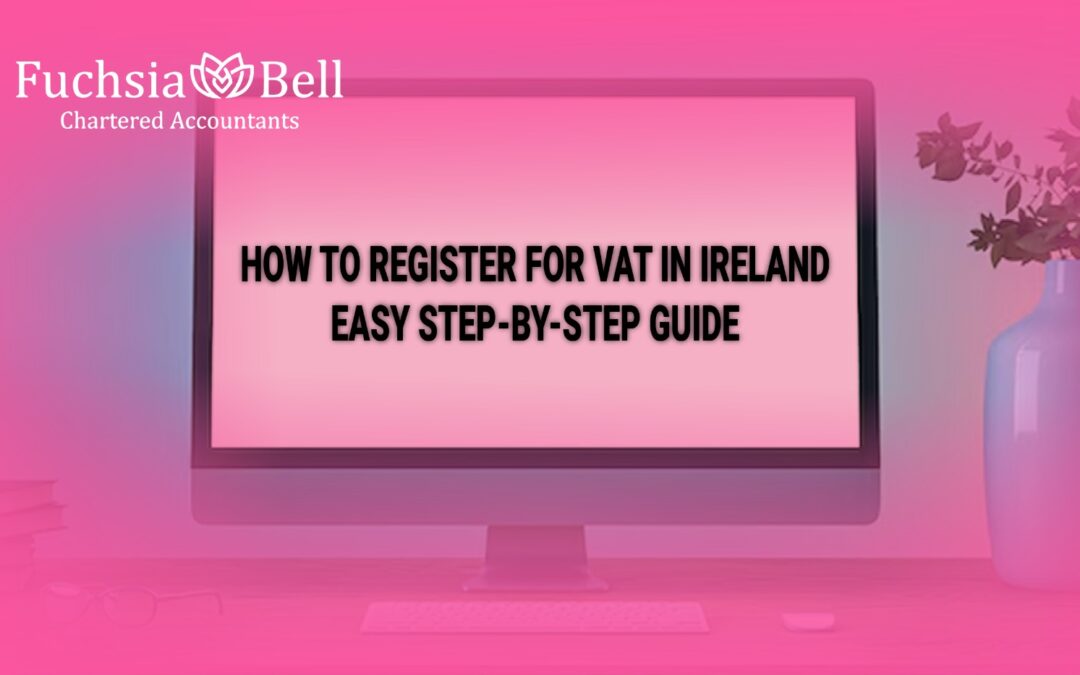Are you starting a business in Ireland and need to register for VAT? Understanding how to register for VAT (Value-Added Tax) is essential if your company meets certain turnover thresholds. This guide explains the steps to register for VAT in Ireland clearly and concisely. Whether you’re a sole trader, partnership, or limited company, knowing when and how to register helps you stay compliant with Irish tax laws. We’ll walk you through the online registration process, what documents you need, and how long it takes. Read on to learn how to register for VAT in Ireland easily.
Understanding VAT in Ireland
“VAT” in Ireland stands for Value-Added Tax, a tax levied on products and services. The vast majority of traders are required to charge VAT on what they sell. The general VAT rate is 23%, while the reduced rate amounts to 13.5%, 9%, or 0% for certain goods and services.
For example, food and kids’ clothing both tend to have a 0% VAT rate. Businesses can get back the VAT they pay on purchases. Revenue, the Irish tax authority, receives the VAT. If your sales exceed a certain amount, you have to register for VAT. The VAT revenue is used to help finance public services, such as health and education. Businesses must maintain accurate VAT records.
Contact For: +353 87 708 8006
Benefits Of Being VAT Registered in Ireland
Take back VAT on Business Costs.
You can reclaim the VAT you have paid on goods and services used in the course of your business when you’re VAT registered. This can be beneficial for your business.
Better Business Image
VAT registration can also make your business appear more professional and established. It could help you earn the trust of clients, partners, and investors.
Required for Higher Turnover
If your business turnover rises over the VAT threshold (£37,500 for services or £75,000 for goods), you must register - it’s a legal requirement. You can save yourself from penalties if you act promptly.
Convenient Selling to Other VAT-Registered Businesses
VAT registration makes it easier for you to do business with other VAT-registered companies. They generally prefer working with registered companies, as they can also reclaim VAT .
Good for EU Trade
A VAT number will be beneficial if you’re trading with other member states of the EU, as it will enable operations to flow more smoothly. You may not have to charge VAT on sales to VAT-registered businesses in other EU countries.
Can Help Cash Flow (for Some Businesses)
You can benefit from collecting VAT and get back more than what you are paying out if your clients or suppliers are not VAT-registered (that is, consumers). However, that’s assuming you have a business that’s conducive to this.
Recover the VAT on Pre-Registration Expenditure
With goods and services you bought before you registered for VAT, you may be able to reclaim the VAT paid on them, provided that you used those goods and services for the business.
Improves Record Keeping
Proper accounting is necessary for VAT registration. This makes it easier to monitor business income and expenses, which is crucial for tax purposes and overall fiscal management.
Avoids Late Penalties
If you’re not far off the VAT threshold, early registration helps you avoid being fined or paying interest on late registration.
Might Be Required for Certain Contracts
VAT registration remains a requirement for specific government contracts or substantial business deals.
Different Types Of VAT Registrations in Ireland

Domestic VAT Registration
This is the standard type of VAT registration in Ireland. It applies to businesses that supply goods or services within the country. If a company sells goods worth more than €75,000 or services worth more than €37,500 in 12 months, it must register for VAT. Some businesses may also register voluntarily, even if their turnover is below the threshold. This allows them to reclaim VAT on business-related purchases.
Intra-EU VAT Registration
This registration is needed when an Irish business buys goods or services from other EU countries. If the total value of goods acquired from other EU member states goes above €41,000 in a year, the business must register for VAT under EU acquisition rules. This ensures that the correct amount of VAT is paid in Ireland. The company must also use a VAT number for trading with EU suppliers.
Distance Selling VAT Registration
Distance selling VAT registration is required for businesses based in other EU countries that sell goods directly to customers in Ireland. If the value of these sales to Irish consumers exceeds €10,000 per year, the business must register for Irish VAT. This rule mainly affects e-commerce businesses and online retailers.
Non-Established Trader VAT Registration
It also includes traders who are non-residents and provide services or goods in Ireland. These will need to register for VAT in Ireland, even if they only sell one item. There is no specific minimum turnover condition. Non-EU businesses may also be required to appoint a tax representative in Ireland to manage their VAT activities.
Import VAT Registration
The import VAT registration applies to companies importing goods to the European Union. They can use the Postponed Accounting system, where they can declare and recover VAT simultaneously in their VAT return. This also prevents you from having to pay VAT on imports immediately, so it can benefit your cash flow.
VAT Group Registration
This form is for groups of affiliated companies. They can file to be treated as a single VAT company. This also means they don’t have to charge and collect VAT on transactions between group companies. It makes VAT reporting less burdensome and can help save on administration costs.
How to Register for VAT in Ireland
Step 1: Check if You Need to Register
You must register for VAT if your business turnover exceeds €37,500 for services or €75,000 for goods in a year. You can also register voluntarily if you want.
Step 2: Create a ROS Account
Go to the Revenue Online Service (ROS) website and sign up. You need this account to register and file VAT returns online.
Step 3: Complete the VAT Registration Form
Fill out the TR1 form for sole traders or individuals or the TR2 form for companies. The form requests your business details, estimated annual turnover, and a description of your business activities.
Step 4: Submit the Form
Send your completed form through ROS. Revenue will review it and send you a VAT registration number.
Step 5: Start Charging VAT
Once registered, charge VAT on your sales, keep good records, and file regular VAT returns.
Register early to avoid penalties and keep your business compliant.
Who Needs To Register For VAT in Ireland?
In Ireland, you’re required to register for VAT if you’re a business that sells goods or services and your turnover exceeds specific thresholds. The cap is 37,500 euros for services and 75,000 euros for goods.
You also have to register if you are provided with certain services from outside Ireland or if you sell goods to other EU countries. Some businesses may also have the option of registering even when they are below the threshold. Farmers and small businesses may have special rules. You may also need to register if you trade online or import goods. You’ll need to verify with Revenue to be certain.
Final Words
Registering for VAT in Ireland: one of the most important things to do on time in business. It ensures you comply with tax regulations and can claim VAT on business purchases. When you have the proper documents and know the steps, the process is fairly straightforward. Apply using Revenue’s online system and ensure that you keep accurate records. When in doubt, consult a tax professional or accountant. With prompt registration and proper organisation, you can avoid penalties and keep your business running smoothly. Sign up for your VAT registration today to stay compliant while building your business with confidence.
FAQs
How Much Does It Cost To Register For VAT in Ireland?
Registering for VAT in Ireland is free. There is no fee to apply. You can register online through Revenue’s ROS system. Businesses must meet certain turnover thresholds to be required to register. Voluntary registration is also allowed.
How Do I Get A VAT Certificate in Ireland?
To obtain a VAT certificate in Ireland, first register for VAT through the Revenue Online Service (ROS). Once registered, log in to your ROS account. Navigate to the VAT section and request your certificate of taxable status. This certificate confirms your VAT registration and is often required when reclaiming VAT from other countries. It will include your VAT number and business details.
How Much Can I Earn Before Registering For VAT in Ireland?
In Ireland, you must register for VAT if your annual turnover exceeds €37,500 for services or €75,000 for goods. If you expect to go over these limits in 12 months, you must register.
How Does VAT Work In Ireland?
In Ireland, VAT is a tax added to most goods and services. Businesses charge VAT on sales and can reclaim VAT on purchases. They file VAT returns with Revenue, paying the difference between the VAT charged and the VAT paid.

